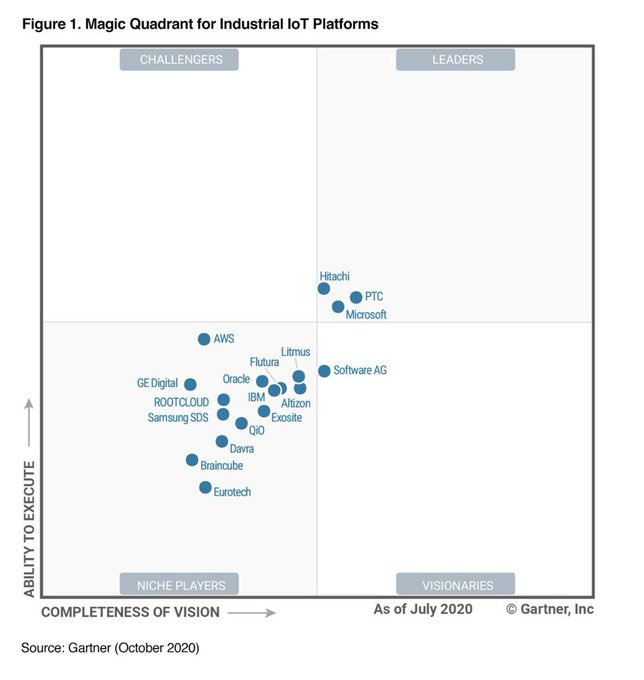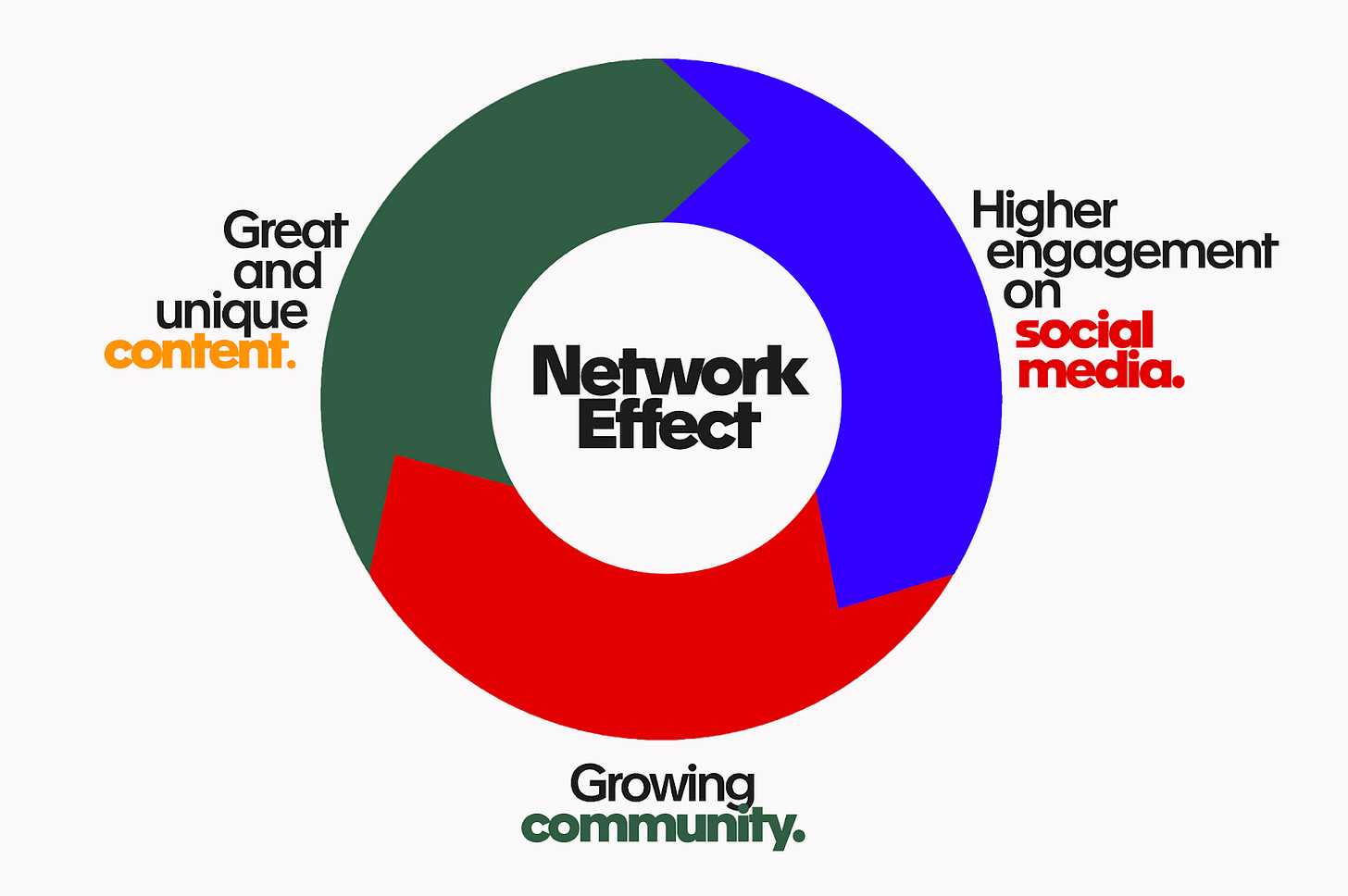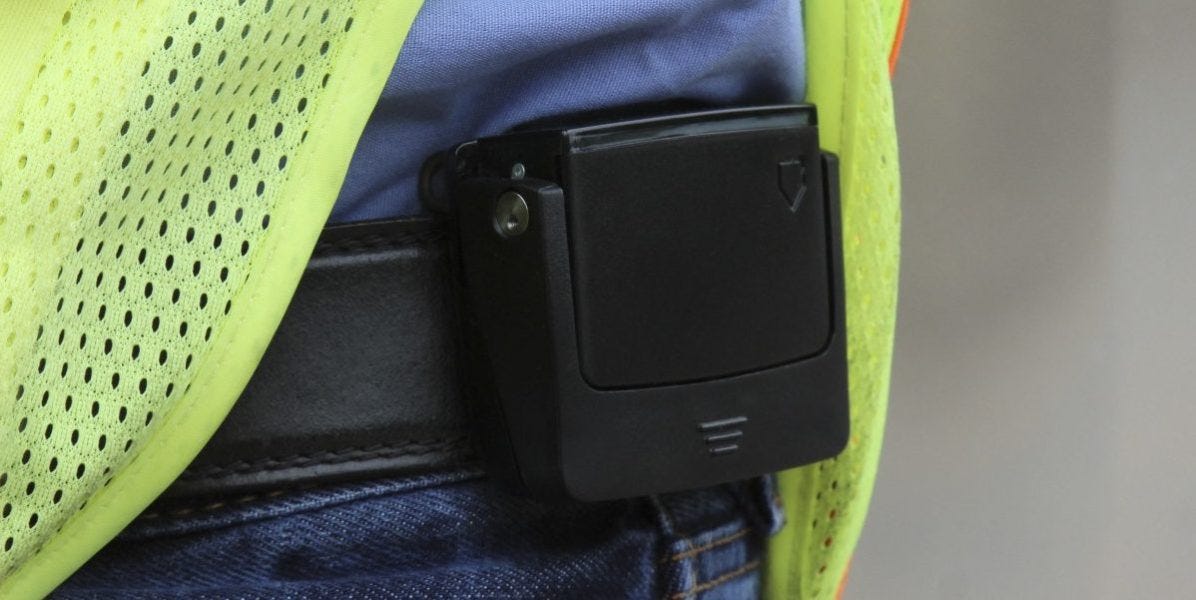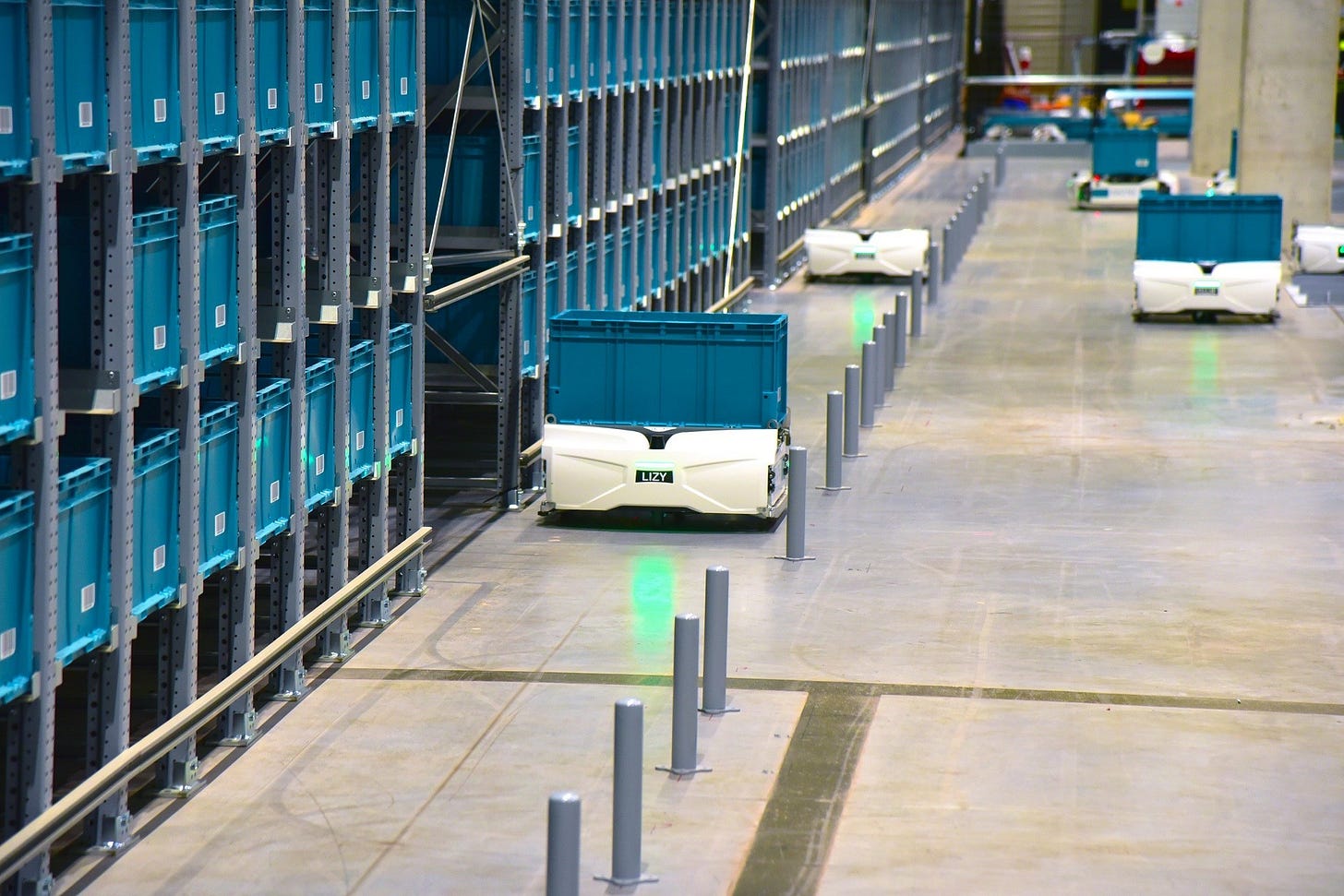Issue #26 - The Future of Manufacturing
👋 Welcome to Issue #26 👋
Topics this time: industrial tech on the rise, collaboration between corporates and startups, one failed and one successful robotics partnership, and lots of new (massive) funding rounds.
🆕 NEW POST: I just published a new blog post where I take a closer look at the M&A activity in the manufacturing industry over the past five years.
✋ SURVEY FOR FOUNDERS: I’d like to better understand what are the most frustrating aspects for founders when working together with corporates. I created a short survey (<5min) and would love your input if you’re a founder. Your answers will help me to think about solutions and in my discussion with corporates. We need to move this industry forward together. Much appreciated!
Got a friend or colleague interested in the future of manufacturing? Help me spread the word by sharing the newsletter if you like it!
What I’ve enjoyed reading 👇
📈 Industrial Tech on the rise (I).
Dealroom in partnership with Speedinvest published a very detailed report about Industrial Tech and Sifted summarized the main findings:
Logistics startups are securing the most investment (€1.2bn since 2015), followed by industrial robotics & autonomous vehicles.
With €962M, German industrial startups have received the largest share of total investments since 2015, followed by France with €857M.
VC investments in Europen Industrial Tech companies have been rising since 2014 every year:
📈 Industrial Tech on the rise (II).
According to Christine Boles, the VP of the Internet of Things Group at Intel, “the pandemic accelerates the need to quickly respond to changes in demand, and highlights the need for a production shift”. This leads to a new focus on prioritizing manufacturing agility and flexibility and is therefore accelerating industrial transformation. She argues that the success of this transformation depends heavily on how well companies adapt to the changing workforce and how good they are at identifying, attracting, and retaining talent. Furthermore, manufacturing companies need to use data better.
🔮 Gartner’s Magic Quadrant for Industrial IoT platforms 2020
I took a closer look at Gartner Magic Quadrant for Industrial IoT platforms (more about Gartner’s research methodology here). It’s rare that I see a Gartner magic quadrant where all the companies are so close to each other - and with no clear leader or visionary. So there is no take away from their analysis, unfortunately. Except maybe how Matt Turck from First Mark puts it: you all suck. See for yourself:
🤖 Walmart is giving up on a big robotics project.
Walmart has ended its contract with Bossa Nova Robotics, a company that is developing shelf-scanning robots. The big retail giant started in 2017 to deploy 50 locations with shelf-scanning robots that use machine vision to identify what products needed restocking. It was planned to roll out the Bossa Nova robots to 1,000 Walmart stores earlier this year but Walmart decided to hold off and ending the partnership. As more people started shopping online during the pandemic, Walmart saw that workers could perform the same inventory checks as the robots.
👉 Personal opinion: Robotics is hard and the Walmart case is another example that humans won't be replaced by robots anytime soon. Even though the partnership has not been as successful as expected, it's great that Walmart took the risk and experimented with Bossa Nova robots. A spokesperson for Walmart confirmed that they "learned a lot about how technology can assist associates". Without trying, they would have never learned that and I'd love to see more manufacturing companies taking risks and trying new things out, otherwise they will never learn. 🤝 Guidelines for start-ups and corporates for successful partnerships.
McKinsey published a new article about five principles of how startups and corporates can collaborate more successfully. These principles are a result of their experience and from surveys and interviews with DACH corporates and startups:
Commitment and attention (from C-level).
Pro-actively manage cultural or technology differences and expectations.
Finding a great starting point to work together.
Clear goals and defined KPIs.
Individual partnerships work better than institutional programs (eg. accelerator).
🤝 BMW teams up with AWS to develop cloud-enabled solutions.
After teaming up with Volkswagen, AWS announced another strategic collaboration with a big automotive player - this time with the BMW group. The main goal is to: “jointly develop cloud-enabled solutions that increase efficiency, performance, and sustainability across every aspect of the automotive life cycle, from vehicle design to after-sales services.” A big focus is on data and analytics which fits nicely into AWS strategy in the manufacturing industry. Just two weeks ago, AWS announced five industrial Machine Learning services.
An interesting side-effect of this collaboration is that the companies plan to train 5k BMW Group-affiliated software engineers in the latest AWS technologies (upskilling!).
🙌 The Rise of Communities - Building Communities in B2B.
I wrote a post where I highlight why communities are the next phase of online customer engagement and why many B2B companies are looking into building communities. I also provided some successful examples and share some tips & tricks I gathered from experts and from building the P9 Family over the last few years.
About industrial Startups and Companies 👇
🤑 Cognite raises a massive $75M Series A.
Cognite, a specialized DataOps and AI platform focused on the manufacturing industry, has raised $75M led by Accel at a stunning valuation of $550M (post-money I assume). It’s one of Accel’s first deals in this industry. Cognite’s platform helps to enrich IT / OT data and to build dynamic virtual models of physical assets (digital twins), with a particular focus on the oil & gas sector. Cognite has already 450 employees and more than 30 enterprise customers.
👉 Personal opinion: The scale sounds too crazy? Well, it's important to know a bit more about the history of the company. The company is not your typical startup since it got somehow "incubated". That's why the Norwegian industrial investment company Aker also owns 65% and was probably helpful with the early customers ("In 2016, Aker set up industrial software company Cognite"). Nevertheless, impressive to see a company in this industry scaling very fast. 🤑 Kinetic (Wearables) raises $11M+.
Wearable device startup Kinetic raised $11.25M (thereof $3M in debt for the hardware) led by Crosslink Capital after increasing revenue by 4x year over year. The company has previously raised $4.5M in October 2018.
Kinetic develops a wearable device called Reflex which fastens to pant waistbands and that is packed with sensors to detect injury-causing activities. The company developed the first prototype in 2014 and finalized the first product in 2016. Employees receive notifications and alerts to increase workforce safety as well as breakdowns of their activity and benchmarks. Kinetic’s algorithms can classify different motions such as bending or overreaching. Here is how the Reflex looks like:
🤑 Augury just closed a $55M Series D.
Augury raised a new round of $55M led by the Israelian investor Qumra Capital with the participation of existing investors such as Insight, Eclipse Ventures, Qualcomm Ventures, and Munich Re. Augury is developing machine health solutions (hardware + software) with a particular focus on maintenance and asset management. It has grown revenue by more than 3x compared to last year and secured important partnerships in the form of delivery partners to supplement installations at the customer. Augury also partners with Munich Re (remember, they bought Relayr) to enable replacement parts as a service. To all founders, here is the pitch deck to raise its $55M round (I would love to see more founders sharing such resources for other founders).
👉 Personal opinion: I summarized on Twitter a few aspects that make Augury successful. In short: • full-stack: by packaging both together it can ensure high quality for its customers and deliver it as-a-service. • fast time-to-value: Augury can show value after 7 days. • specific target group: focus on a niche, ie. food producers and pharmaceutical producers. • account expansion: very fast global rollouts within customers. • senior leadership team: its leadership bench has both deep industry as well as tech experience🤑 Vanti Analytics closed a $4.5M Seed round.
Israelian-based startup Vanti Analytics raised $4.5M led by True Ventures and More-VC. Vanti Analytics develops a software platform built for operations managers in electronics manufacturers to increase bottom-line productivity. As we know, manufacturing is “data rich but information poor” and Vanti Analytics tries to deploy smart models without the need for data science teams or consulting firms.
🤑 83North is leading a $90M Series C at Exotec.
The French robotic startup closed a massive $90M Series C led by 83North followed a $17.7M Series B in 2018. Exotec manufactures its robots in Lille (France) and plans to build 4,000 robots per year by 2021. The robots, called Skypods, can roam the floor and go up and down racks. Exotec is also developing the software to coordinate all those robots through the warehouse. Check out this video and picture below to get a glimpse of the Skypods:
🤑 Resilience raised a spectacular $800M round.
If you thought some of the previous rounds were crazy, then Resilience is entering a new level. The company that aims to transform biotech manufacturing closed an $800M round with Arch Venture Partners and 8VC. The company develops new manufacturing technologies in the biopharmaceutical area, ie. for gene therapies, vaccines, and proteins. Resilience was born out of Robert Nelsen’s frustration that bringing new treatments to market is a big hurdle in the therapeutic manufacturing process. Covid-19 has made this even more visible.
👉 Personal opinion: It's important to know a bit more about Robert Nelsen to understand why he could raise so much money. Robert is a co-founder of Arch Venture Partners, a fund focused on life science. He invested in more than 100 companies, including twenty-seven which have reached valuations exceeding $1 billion. 27 Unicorns. Twenty-seven!! Other than that, I do not know much about the company or round unfortunately. 💸 Ocado acquired robotics company Kindred Systems.
The technology and automation company Ocado Group acquired Kindred Systems that develops piece-picking robots. Kindred got founded in 2014 and has previously raised $79M from FirstRound, Eclipse Ventures, and others. According to Ocado Group’s CEO, the robotic pick opportunity in online grocery is a massive opportunity for them, and the reason why they acquired Kindred Systems. Kindred was one of the first robotics companies to use deep reinforcement learning to improve the learning process of its piece-picking robots. The acquisition price is not disclosed.
🤑 Rapid Robotics snaps a $5.5M Seed round.
Speaking of robots, Rapid Robotics closed a $5.5M round led by Greycroft and Bee Partners. Rapid Robotics is building an affordable, out-of-the-box, and pre-programmed robot that doesn’t require the same sort of training. It can perform a variety of tasks including part inspection and pick-and-place. The business model is interesting since the company sells it as a “robot-as-a-service”, ie. a factory can rent the robot for $25k a year.
Additional thoughts on recent development
M&A activity in the manufacturing industry
I took a closer look at the M&A activity in the European manufacturing industry in the past five years. Here are the main results:
📅. By year: the amount of acquisitions per year has decreased every year since 2016 - with 275 acquisitions in 2016 to only 117 acquisitions in 2019.
🌍 By country: The surprising result is that there have been more acquisitions in the UK (27.2%) compared to Germany (16.5%).
ℹ️ By type: the immense majority of the acquisitions (87.3%) have been made in the “non-software” category. Manufacturing companies have also acquired a significant amount of consulting companies.
Given the massive changes that come with the industry’s digitization, all the new technologies, the skills gap, and the worldwide competitive pressure, I’m convinced that we will see more software-related acquisitions and also acqui-hires. It comes with some risks, but Covid-19 has increased the urgency to drive the manufacturing industry’s digital transformation. That’s good.
However, we need to stop the self-complacency that we sometimes have in Germany and focus on how we — the startup and the corporate world — can collaborate better and learn from each other. Based on my experience in the last years, I think there is a massive gap in how both sides talk and engage.
Industry 4.0 - Reinventing the Factory Stack
There are now in total 430+ companies in the landscape, which I just updated again, more to come soon:
Again, Thanks to everybody for supporting this newsletter and for sending me interesting links. As always, any input, shares, and feedback are still warmly welcome 🙏
Robin









